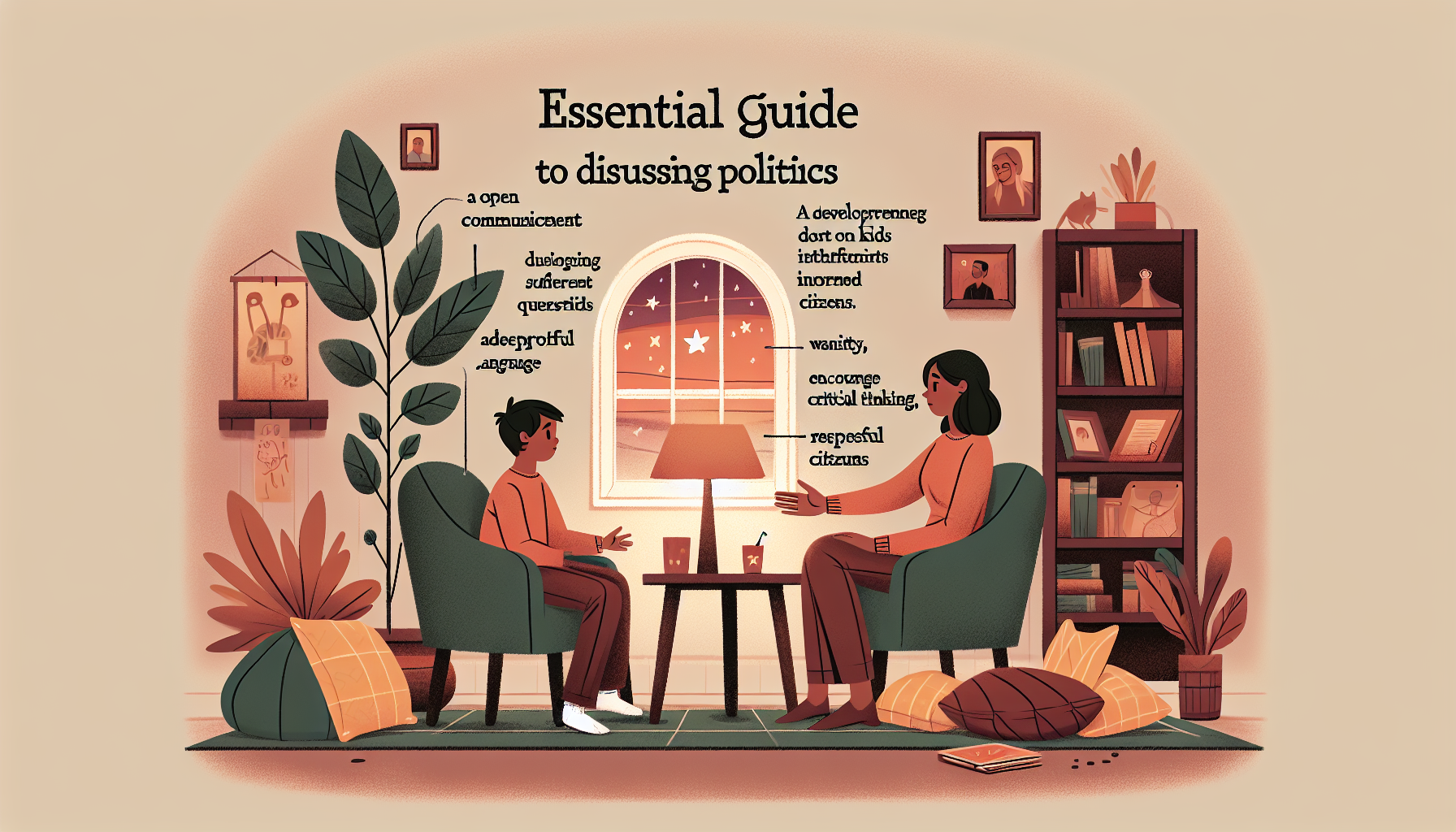“`html
How to Talk About Politics With Children
Introduction
Politics is a topic that can feel daunting to discuss with children. However, it is an essential part of educating children about the world around them and helping them develop critical thinking skills. Children are naturally curious and may ask questions about political events, social issues, or even the news they hear. As parents, understanding how to address these questions thoughtfully and appropriately can have a lasting impact on their worldview.
In this article, we’ll explore why talking about politics with children matters, how to approach these discussions, and practical tips for engaging with your child in a way that fosters understanding, respect, and open communication.
Why Talking About Politics With Children Matters
Children are growing up in a world where political decisions directly influence their lives, from issues like education and climate change to social equality. Ignoring these topics or avoiding conversations about them can leave children feeling confused or disempowered.
According to research on child development, open communication helps build trust and strengthens the parent-child relationship. Discussing politics in an age-appropriate way also fulfills important psychological needs:
- Need for safety: Children feel reassured when their questions are answered honestly.
- Need for autonomy: Engaging in discussions empowers children to form their own opinions.
- Need for self-expression: Providing a platform for children to share their thoughts helps them feel valued.
Key Principles for Talking About Politics With Children
When approaching political discussions with your child, consider the following principles to ensure the conversation is meaningful and constructive:
1. Use Age-Appropriate Language
Tailor your discussion to your child’s age and developmental stage. For younger children, focus on simple concepts like fairness and kindness. Older children and teens may be ready to explore more complex topics like government structures, laws, or current events.
2. Listen Actively
Encourage your child to share their thoughts and ask questions. Active listening shows that you value their perspective and creates an environment where they feel safe to express themselves.
3. Avoid Overloading with Information
It’s easy to overwhelm children with too much information, especially when discussing heavy or controversial topics. Focus on one or two key ideas and allow your child to digest and reflect on them before moving on to more complex discussions.
4. Model Respectful Dialogue
Children learn by observing, so demonstrate respectful communication even when discussing opposing viewpoints. This teaches them how to engage in civil discourse and respect differing opinions.
Practical Tips for Engaging Conversations
Here are some practical ways to make political discussions with your child productive and meaningful:
1. Start With Their Questions
Children are naturally inquisitive. Use their questions as a starting point for discussions. For example, if your child asks why people are protesting, you can explain the basic concept of advocating for change and why it’s important in a democracy.
2. Use Stories and Examples
Stories can be a powerful way to explain political concepts. For younger children, use relatable examples such as sharing toys to discuss fairness. For older kids, you might reference historical events or notable figures to illustrate key ideas.
3. Connect Politics to Everyday Life
Help your child understand how politics affects their daily life. For instance, explain how decisions made by local governments impact their schools, parks, or community programs. This makes the topic more relevant and relatable.
4. Encourage Critical Thinking
Ask open-ended questions that encourage your child to think critically, such as, “What do you think would happen if everyone had the same rules?” or “Why do you think people have different opinions on this issue?”
5. Be Honest About Uncertainty
It’s okay to admit when you don’t have all the answers. Use these moments as opportunities to learn together by researching or exploring the topic further.
Addressing Challenging Topics
Some political topics can be emotionally charged or difficult to discuss, such as inequality, climate change, or conflict. Here’s how to approach these sensitive issues:
- Stay Calm: Your child will take cues from your tone and body language. Remain calm and composed, even when discussing difficult topics.
- Validate Their Emotions: If your child expresses fear, anger, or confusion, acknowledge their feelings and provide reassurance.
- Focus on Solutions: Highlight positive actions people are taking to address these issues to instill hope and inspire your child to think about ways they can make a difference.
Conclusion
Talking about politics with children is not just about educating them on current events or societal structures—it’s about fostering critical thinking, empathy, and a sense of agency. By addressing their questions, encouraging open dialogue, and modeling respectful communication, parents can empower their children to navigate the complex world of politics with confidence and understanding.
Remember, every conversation is an opportunity to strengthen your bond with your child and equip them with the tools they need to become informed, engaged citizens. So, the next time your child asks about a political topic, embrace the moment and begin the conversation. Together, you can explore the world and its complexities in a way that inspires curiosity and growth.
“`

